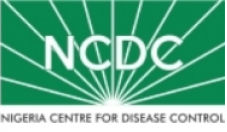Drug-Resistant Diseases Threaten Global Food Systems and Health Security, Warns NCDC
By Adebowale Bello. Freelance Health Writer.

Wednesday, September 25, 2024. The Nigeria Centre for Disease Control (NCDC) has raised alarm about the escalating threat of antimicrobial resistance (AMR), urging a coordinated international response to avert its far-reaching consequences on health, food security and global development.
Speaking at a side event on AMR during the 79th United Nations General Assembly (UNGA79), NCDC Director-General, Dr. Jide Idris, highlighted the urgent need for collective action. The event was organized by Management Science for Health (MSH), and Idris warned that the unchecked spread of AMR poses severe risks to national health security and the global food supply.
“AMR is far more than a health issue—it is a global development crisis,” Dr. Idris emphasized. “It threatens food security, undermines maternal and child health, disrupts economic stability and weakens national defense systems.” He further stressed that failure to address AMR will result in millions being plunged into extreme poverty, decades of medical progress being undone and millions of deaths each year.
Antimicrobial resistance occurs when bacteria, viruses, fungi and parasites evolve to withstand medicines designed to combat them. This resistance makes infections significantly harder to treat and increases the risk of disease spread, severe illness and death, according to the World Health Organization (WHO). The WHO projects that AMR could cause up to 10 million deaths annually by 2050 if robust interventions are not implemented. With Nigeria's population expected to surpass 400 million by that year, the country’s success in combating AMR will be critical in mitigating its global impact.
Dr. Idris explained that the misuse of antibiotics in both human and animal health, poor access to clean water and sanitation, weak infection control measures and inadequate surveillance systems are major drivers of AMR. He called for the adoption of a “One Health” approach, promoting collaboration across the health, agriculture, environmental and industrial sectors to develop a comprehensive response.
As part of Nigeria's commitment to tackling AMR, Dr. Idris discussed the National Action Plan on AMR, which integrates AMR strategies into the broader national health and development agenda. "Our four-point agenda demonstrates our resolve to address AMR through healthcare reforms," he stated. "We're investing in healthcare modernization to improve surveillance and treatment, upgrading diagnostics and integrating data systems to better track resistance patterns." He further highlighted Nigeria’s progress in expanding diagnostic laboratory networks nationwide to improve AMR monitoring and enhance early detection of outbreaks.
Achieving universal health coverage is a critical step in curbing AMR. Without access to proper healthcare, many individuals resort to informal treatments and misuse antibiotics, contributing to the rise of drug-resistant infections. “In Nigeria, we are working to make access to quality healthcare a right for all, not a privilege,” the Director noted. “Expanding universal health coverage will ensure that more Nigerians receive timely diagnosis, appropriate antibiotic use and better treatment for infections."
He also stressed the importance of a robust primary healthcare system in reducing the burden of infectious diseases and curbing unnecessary antibiotic use. A resilient pharmaceutical supply chain is essential for ensuring access to quality antibiotics and diagnostics while preventing the circulation of counterfeit or substandard medicines, Dr. Idris added. He explained that the Nigerian government is actively working to enhance oversight of antibiotic distribution and tighten regulations to prevent the misuse of restricted drugs. “Our goal is to strengthen pharmaceutical systems to safeguard the quality of medications and stop the misuse of antibiotics,” he concluded.
Source: Premium Times
Related:
Antimicrobial Resistance in Africa: Causes and Solutions
Self-medication in Africa: What you need to know
Self-Medication in Africa: What Are The Consequences?
Self-medication in Africa: 4 commonly misused drug categories
Published: September 25, 2024
© 2024. Datelinehealth Africa Inc. All rights reserved.
Permission is given to copy, use and share content for non-commercial purposes without alteration or modification and subject to attribution as to source.
DATELINEHEALTH AFRICA INC., is a digital publisher for informational and educational purposes and does not offer personal medical care and advice. If you have a medical problem needing routine or emergency attention, call your doctor or local emergency services immediately, or visit the nearest emergency room or the nearest hospital. You should consult your professional healthcare provider before starting any nutrition, diet, exercise, fitness, medical or wellness program mentioned or referenced in the DatelinehealthAfrica website. Click here for more disclaimer notice.